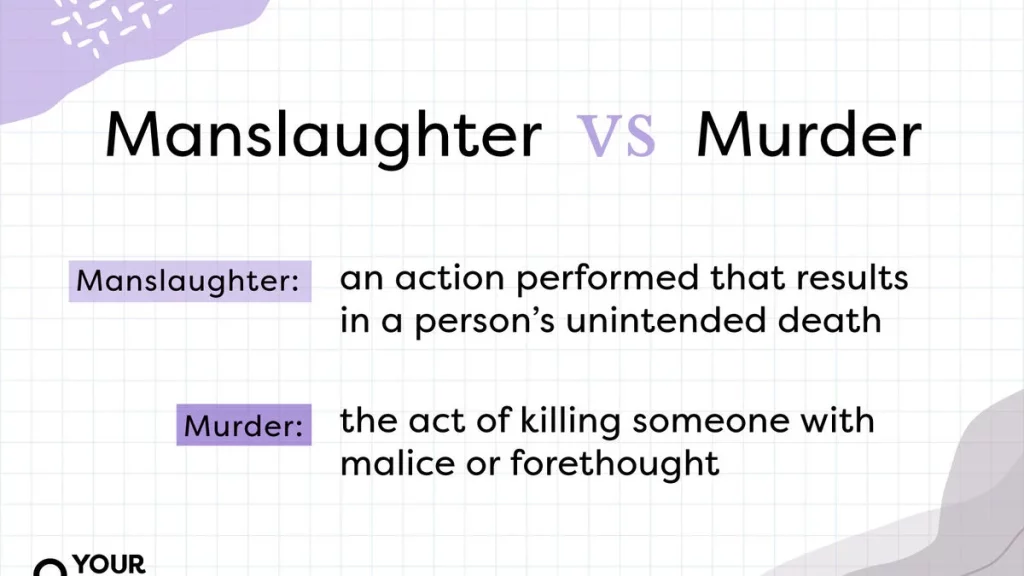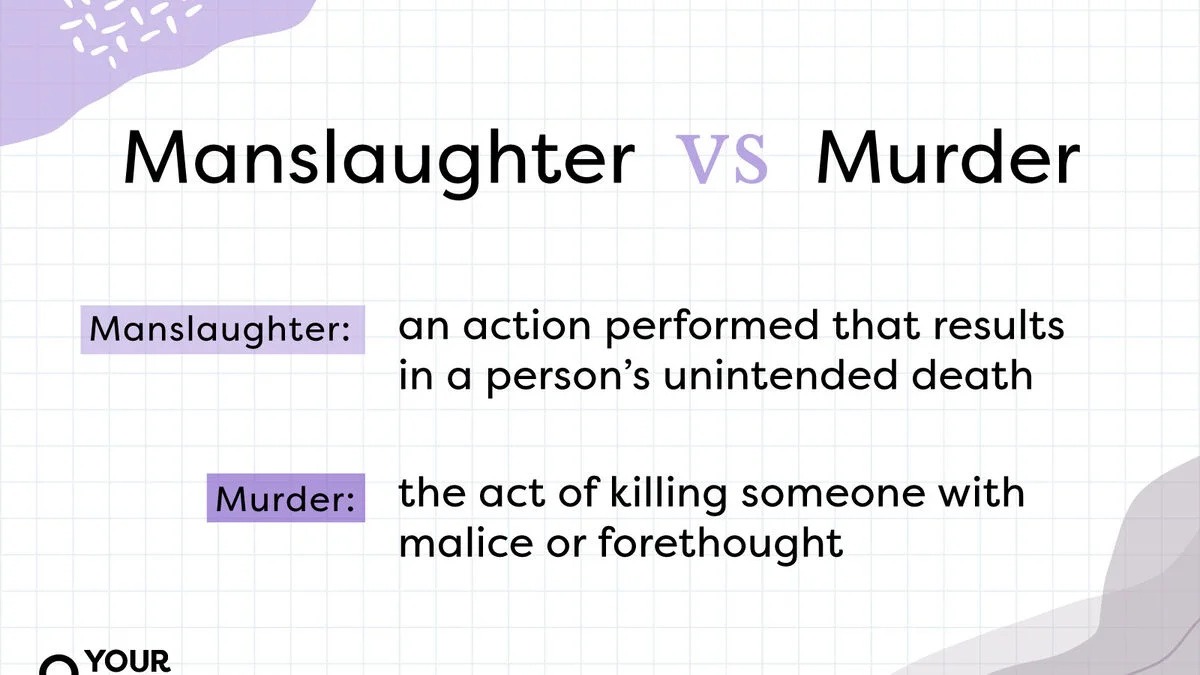What is the difference between murder and homicide
Did you know what is the difference between murder and homicide crimes terms which commonly same meanings. It’s true that they’re similar in nature, but they are not synonymous, and have number of key distinctions. Understanding these distinctions is crucial for legal proceedings and forming an educated view of crime-related news or events.
Here is a table that summarizes the key differences between murder and homicide:

| Characteristic | Murder | Homicide |
|---|---|---|
| Definition | Unlawful killing of one person by another with malice aforethought | Killing of one person by another |
| Intent | Intent to kill or cause serious harm | May or may not be intentional |
| Punishment | Usually life in prison or the death penalty | Varies depending on the circumstances |
Definition of Homicide
Homicide can be defined as the act of one human taking the life of another (act of one person causing the death of another person). This can include both legal and illegal actions.
Homicide is when one person causes the death of another person. It’s important to know that not all homicides are automatically considered crimes. Whether it’s classified as a criminal act or not depends on the specific situation.

For example, acts of self-defense or official actions taken by police officers fall under the category of lawful homicide.
Criminal homicides can be further divided into:
- Murder (first-degree and second-degree) – As described earlier.
- Manslaughter: an unlawful killing without malice or premeditation.
- Voluntary manslaughter: The intentional killing resulting from the heat of passion due to reasonable provocation.
Example: In a passionate and sudden rage, Susan grabs a weapon and kills her spouse, who she caught cheating on her moments ago.
- Involuntary manslaughter: The unintentional killing resulting from recklessness or criminal negligence, usually connected to a lawful act that results in death.
Example: While drag racing, a driver loses control of his car and hits a pedestrian, killing them.
- Criminally negligent homicide: The causing of death by criminally negligent or careless actions, typically connected to high-risk behavior.
Example: A construction worker accidentally drops a heavy tool from a high height, which falls on a passerby, killing them. The construction worker failed to follow safety protocols.
Non-criminal homicides may include:
- Justifiable homicide: A homicide carried out in self-defense or defense of others, to prevent a serious crime, or by lawful orders during wartime.
Example: A homeowner kills an armed person who enters their home with mind to harm the homeowner and their family.
- Excusable homicide: A homicide resulting from an accident or misfortune where there was no illegal intent or gross negligence involved.
Example: A hunter, following all safety protocols, accidentally shoots and kills a hiker who had unknowingly wandered into the designated hunting area.
Types of Homicide
Homicide can be categorized into various types, including but not limited to:
- Murder
- Manslaughter
- Vehicular Homicide
- Justifiable Homicide
Definition of Murder

In legal terms, murder is defined as the unlawful killing of another person with planning or intended. In many jurisdictions, murder is further classified into two Degrees.
- First-degree murder (when the act is pre-planned, deliberate, and possibly committed along with additional felony offenses)
- Second-degree murder (when the act is intentional but has not been extensively pre-planned).
Manslaughter as a Form of Criminal Homicide
It’s important to note that manslaughter is another type of criminal homicide distinct from murder. Unlike murder, manslaughter does not involve premeditation or intent to kill. Instead, it arises from reckless, criminal negligence or a crime of passion (with the latter often classified as “voluntary manslaughter”). In essence, it’s a lesser degree of criminal responsibility.
Key Differences
The main differences between murder and homicide lie in their definitions and legal implications. Homicide refers to the broader concept of one person taking another’s life, while murder specifically involves intentional and premeditated actions.
- Meaning: Homicide is a generic term referring to the act of one person causing another person’s death, while murder is a specific type of unlawful homicide involving premeditation and intent.
- Criminality: Not all homicides are unlawful or criminal, whereas all murders are by nature illegal and subject to criminal prosecution.
- Intent: Murder involves the intention to cause harm or death, while the definition of homicide does not necessarily require intent.
- Manslaughter: Manslaughter is a separate category of criminal homicide, differing from murder in that it involves a lack of intent or premeditation.
After understanding the key differences between murder and homicide, it becomes clear they are not interchangeable terms and must be used correctly to accurately describe the circumstances and nature of a specific act.
Legal References:
- Black’s Law Dictionary, Sixth Edition – “Homicide.”
- Black’s Law Dictionary, Sixth Edition – “Murder.” See also Commonwealth v. Carroll (1963) 194 A.2d 911.
- See, for example, California Penal Code 187 PC.
- Black’s Law Dictionary, Sixth Edition – “Malice aforethought.” See also Lara v. Ryan (9th Cir. 2006) 455 F.3d 1080.
- See, for example, Nevada Revised Statutes 200.030.
- See, for example, Florida Statutes 782.04.
- See, for example, Colorado Revised Statutes 18-3-103(1)(b).
- Black’s law dictionary, Sixth Edition – “Manslaughter.”
- https://uollb.com/blog/law/murder-in-criminal-law


